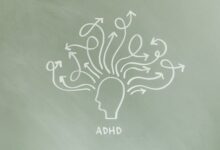
Risk Factors Of Mental Illness
Mental illness isn’t just caused by one thing. Instead, researchers link it back to various “risk factors” contributing to the onset of symptoms.
The basic idea is pretty simple; the more risk factors you have, the more likely you are to develop a mental illness.
Interestingly, these risk factors can affect you differently depending on your age and life circumstances. For instance, you might feel good in one situation but bad in another, even if the background factors remain the same.
This article looks at some of the causes of mental illness to help you better understand where your mind-related issues might originate.
Unhealthy Habits
Unhealthy habits like failing to get enough sleep or eating the wrong type of food can increase your risk of developing mental illness. If you feel tired and exhausted all the time, then, naturally, your life won’t be as enjoyable as it could be.
Not eating is another major risk factor. Your chances of developing low mood symptoms increase significantly if you don’t get sufficient food.
Engaging in substance abuse or drinking too much alcohol can also seriously damage your mental health, and you may require full or partial hospitalization. Drugs, for instance, commonly trigger mental illness, even if used recreationally.
Negative Thoughts
Negative thoughts can produce a downward spiral of depression and despair. Constantly putting yourself down or ruminating on how someone wronged you puts you right back in the situation and stops you from enjoying the present moment.
Worse still, negative thinking can worsen significantly over time. Repeating the same thoughts changes the brain’s structure, making it more likely you will think the same things in the future.
Imbalance Brain Chemistry
The chemical theory of mental health has been around for fifty years. It’s the idea that your brain isn’t producing enough of some neurotransmitters but not enough of others.
Over time, science has moved on considerably, and researchers believe brain chemistry is partly responsible. However, as many studies show, it is not the full sto#ry.
Childhood Trauma
Originally, most analysts believed that mental illness came from childhood trauma. Kids had bad experiences growing up, which later impacted them as adults via their unconscious minds.
Today, these theories still carry enormous weight. However, they don’t always tell the full story. Many people who go through trauma do not develop mental health conditions when they are older.
Cultural Context
Culture plays a significant role in mental health issues. The context in which people live can profoundly impact how they relate to the world.
Today, we can see the effects of the cultural context in action. Mental health problems, for instance, are getting worse due to political crises, economic upheaval, and wars.
In recent years, social media has also played a significant role. For the first time, people have been able to compare themselves to others with just the click of a button.
Genetics
Mental health professionals also believe that genetics may play a role. That’s because mental illness often runs in families.
However, teasing out the specific effects of genetics isn’t easy. That’s because genes don’t code for the types of thoughts people have. With that said, they may impact the types of chemicals the brain produces. Families with a history of mental illness may struggle to generate sufficient serotonin or dopamine to remain healthy.
Stressful Events
Stressful events can also significantly affect a person’s mental health. For instance, you may have noticed that your mental health coincides with events in your life.
Stressful events can include:
- School, college, or university examinations
- Bullying
- The death of a loved one
- Getting fired from a job
- Being made unemployed
- Facing tough deadlines imposed by management
- Facing a severe illness
- The breakdown of a relationship
When stressful events occur, the body hunkers down to weather the storm. Depression is often a way of avoiding challenges until things become easier.
Poverty
Living in poverty is another significant risk factor for mental illness. Often mental health issues and difficulty making money go hand in hand. People can feel like missing out when there aren’t enough resources to live a good life.
A Negative Environment
Lastly, a negative environment can cause some people to develop mental illness. Good examples include living in an area without any natural beauty or remaining in an abusive relationship.
Negative environments tend to produce mental health problems slowly over time. In many cases, the effects aren’t noticeable from one day to the next. However, they accumulate over time and can tremendously impact a person’s well-being.
Conclusion
Many factors can contribute to the development of mental illness. And unfortunately, it is often hard to separate one from another. Researchers can identify common causal factors when looking at a large population, but you might not be able to point to anything specific in your life.
Mental health issues also take many forms, so it isn’t always clear which events lead you to develop particular symptoms. For instance, you could feel down or sad, find it difficult to concentrate, or have excessive fears about a particular topic. You might also have extreme mood swings or experience significant tiredness or low energy. Depending on the nature of your mental health issue, you may experience sex drive changes or have excessive anger and hostility towards other people.
Each factor contributes to these symptoms differently. And, in many cases, you will have more than one symptom. You may also experience physical effects of poor mental health, including stomach and bladder pain or tenderness in your joints. Many people with long-term mental health issues develop body-wide pain disorders that are challenging to treat with conventional medications.
Remember, if you have mental health symptoms, always visit your doctor.





